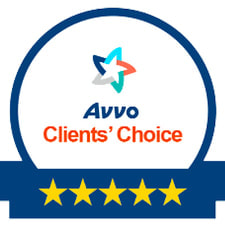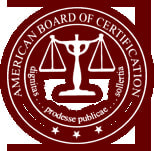FACT: Debt consolidation and debt settlement companies are a waste of money, and quite possibly one of the biggest scams to hit American consumers in decades. Here's why.
First, let's go through the different options when it comes to 'debt relief'.
1. PAYING YOUR DEBT IN FULL OVER TIME ON YOUR OWN: This involves contacting your creditors to figure out how much it would cost monthly, making minimum payments with the goal of paying off all of your debt over a fixed period of time. Sometimes you can ask the creditor to close the account and prevent further charges.
PRO: This is ordinarily best for your credit, although closing an account can impact it negatively, along with a growing amount of debt compared to your income.
CON: There are high interest/fees/ and almost no protection from lawsuits. These usually fail as the minimum payments become burdensome and you cannot modify them to meet your lifestyle needs.
2. DEBT CONSOLIDATION: This usually entails paying 100% of your debt back plus fees/interest, along with company fees(often $5000 or so) to a 'debt consolidation' company. The debt consolidation company gets paid first, and the creditors often do not want to wait, so they take you to court, and then you're forced to find alternatives.
PRO: Can be better for your credit than bankruptcy.
CON: The fees for debt consolidation are high, and despite what they may tell you, they offer no protection against creditors who may decide they want to get paid right away, and file a lawsuit to garnish your wages. You will accrue interest, fees with the creditors, pay 100% back, and your payment cannot be changed if you lose income or have higher expenses. Many of those in the 'debt consolidation' system wind up filing bankruptcy eventually because they are sued, garnished, or have possessions taken, but not until after the debt consolidation company has been paid. This is why, in my opinion, debt consolidation is a huge scam, waste of time and money. Additionally, it doesn't include tax debt, mortgage debt, or debt for a vehicle you're currently driving, so if you're having major issues with these creditors, you can fail at paying any of them.
3. PAYMENT PLAN DEBT SETTLEMENT: This is a payment plan where a third party tries to settle with creditors to pay a lower amount, but over time, but not until their fees are paid up front, usually also in the amount of $5000.
PRO: Better for your credit than bankruptcy. If your debt is low enough, or the payments are made fast enough, you could theoretically save money, although most people don't make it all the way through without having to file bankruptcy.
CON: The fees for debt settlement are high, and despite what they may tell you, they offer NO PROTECTION against creditors who may decide they want to get paid right away, and file a lawsuit to garnish your wages. You will accrue interest, fees with the creditors, and your payment cannot be changed if you lose income or have higher expenses. Many of those in the 'debt settlement' system wind up filing bankruptcy eventually because they are sued, garnished, or have possessions taken, but not until after the debt settlement company has been paid. Debt settlement may require you to pay taxes on the debt reduction. Debt settlement will also negatively affect your credit. This is why, in my opinion, debt settlement payment plans are also a huge scam, waste of time and money. Doesn't include tax debt, mortgage debt, or debt for a vehicle you're currently driving.
4. LUMP SUM DEBT SETTLEMENT: This is the most successful option, but it comes with some risks.
QUICK TIP: It's always best to have a lawyer helping you for this - contact our office at 248.719.5663 for more information.
- PROS: Debt is reduced immediately, with often greater savings than in any of the above-mentioned options. Since the debt is resolved right away, the risk of lawsuits disappears as to creditors who agree. I have successfully saved consumers over $250,000 with lump sum debt settlement, paying as little as 5% back to creditors.
CONS: Can sometimes require a high percentage of the total amount owed, up front, and most consumers don't have access to that kind of cash. Can sometimes incur tax consequences for debt forgiveness. For consumers who remove money from an investment account, there can be tax consequences and penalties involved. Doesn't include tax debt, mortgage debt, or debt for a vehicle you're currently driving.
BANKRUPTCY IS OFTEN BETTER, AND CAN SAVE YOU THOUSANDS, SOMETIMES TENS OF THOUSANDS OF DOLLARS!
Consumers often make the emotional mistake of doing everything to avoid bankruptcy without understanding the benefits or looking at the big picture because they believe there is a stigma to filing. But with the exception of lump sym debt settlement, it's often just a matter of time before you go from debt consolidation/monthly payments to bankruptcy. There are generally two types of bankruptcy available, and they should always be compared to the above, non-bankruptcy options.
1. CHAPTER 13 BANKRUPTCY: One monthly payment to handle all of your debt. Or if you're a Lord of the Rings fan, 'one payment to rule them all!'.
PROS: Have tax debt? Mortgage debt? Behind on vehicle payments? Credit cards? Medical bills? Chapter 13 can handle every type of debt you have, and often pay your unsecured creditors (credit cards/medical bills/cash advance loans) as little as 0%. The savings can be enormous, and it will prevent lawsuits, collections actions, repossessions, judgments and garnishment. You won't lose your assets to a trustee in a Chapter 13.
CONS: On your credit report for 7 years. With the wrong attorney, you might pay more than you should. While you can change the payments in Chapter 13 to suit your lifestyle needs, there are limits based on your priority (tax/child support) and secured (mortgage/vehicle) debt.
2. CHAPTER 7 BANKRUPTCY: A one-time payment to discharge your debt.
PROS: Unsecured debt is gone in about 3 to 4 months. No payment plan. Easy and very inexpensive.
CONS: Some of your high value assets could be at risk of being taken by a Chapter 7 trustee. Bad for your credit, and on your record for 10 years.
Looking at all of these options, it has been my experience that most people who try paying their creditors on their own, or sign up for debt consolidation or payment plan debt settlement end up filing bankruptcy eventually because of the lack of protection and strict payment regimen. The option with the best outcome is often lump sum cash settlement, but in the words of many of my clients 'if I had $5000 to settle a debt, I wouldn't be calling you!'. If you don't have a lump sum of cash at the ready, Chapter 7 and 13 offer much higher savings and best of all, protection from creditor lawsuits, garnishments and property seizure. Bottom line: contact me at 248.719.5663 or email me at [email protected] so we can go over your options for free, and you can compare apples to apples, and figure out the best plan for your financial future!
First, let's go through the different options when it comes to 'debt relief'.
1. PAYING YOUR DEBT IN FULL OVER TIME ON YOUR OWN: This involves contacting your creditors to figure out how much it would cost monthly, making minimum payments with the goal of paying off all of your debt over a fixed period of time. Sometimes you can ask the creditor to close the account and prevent further charges.
PRO: This is ordinarily best for your credit, although closing an account can impact it negatively, along with a growing amount of debt compared to your income.
CON: There are high interest/fees/ and almost no protection from lawsuits. These usually fail as the minimum payments become burdensome and you cannot modify them to meet your lifestyle needs.
2. DEBT CONSOLIDATION: This usually entails paying 100% of your debt back plus fees/interest, along with company fees(often $5000 or so) to a 'debt consolidation' company. The debt consolidation company gets paid first, and the creditors often do not want to wait, so they take you to court, and then you're forced to find alternatives.
PRO: Can be better for your credit than bankruptcy.
CON: The fees for debt consolidation are high, and despite what they may tell you, they offer no protection against creditors who may decide they want to get paid right away, and file a lawsuit to garnish your wages. You will accrue interest, fees with the creditors, pay 100% back, and your payment cannot be changed if you lose income or have higher expenses. Many of those in the 'debt consolidation' system wind up filing bankruptcy eventually because they are sued, garnished, or have possessions taken, but not until after the debt consolidation company has been paid. This is why, in my opinion, debt consolidation is a huge scam, waste of time and money. Additionally, it doesn't include tax debt, mortgage debt, or debt for a vehicle you're currently driving, so if you're having major issues with these creditors, you can fail at paying any of them.
3. PAYMENT PLAN DEBT SETTLEMENT: This is a payment plan where a third party tries to settle with creditors to pay a lower amount, but over time, but not until their fees are paid up front, usually also in the amount of $5000.
PRO: Better for your credit than bankruptcy. If your debt is low enough, or the payments are made fast enough, you could theoretically save money, although most people don't make it all the way through without having to file bankruptcy.
CON: The fees for debt settlement are high, and despite what they may tell you, they offer NO PROTECTION against creditors who may decide they want to get paid right away, and file a lawsuit to garnish your wages. You will accrue interest, fees with the creditors, and your payment cannot be changed if you lose income or have higher expenses. Many of those in the 'debt settlement' system wind up filing bankruptcy eventually because they are sued, garnished, or have possessions taken, but not until after the debt settlement company has been paid. Debt settlement may require you to pay taxes on the debt reduction. Debt settlement will also negatively affect your credit. This is why, in my opinion, debt settlement payment plans are also a huge scam, waste of time and money. Doesn't include tax debt, mortgage debt, or debt for a vehicle you're currently driving.
4. LUMP SUM DEBT SETTLEMENT: This is the most successful option, but it comes with some risks.
QUICK TIP: It's always best to have a lawyer helping you for this - contact our office at 248.719.5663 for more information.
- PROS: Debt is reduced immediately, with often greater savings than in any of the above-mentioned options. Since the debt is resolved right away, the risk of lawsuits disappears as to creditors who agree. I have successfully saved consumers over $250,000 with lump sum debt settlement, paying as little as 5% back to creditors.
CONS: Can sometimes require a high percentage of the total amount owed, up front, and most consumers don't have access to that kind of cash. Can sometimes incur tax consequences for debt forgiveness. For consumers who remove money from an investment account, there can be tax consequences and penalties involved. Doesn't include tax debt, mortgage debt, or debt for a vehicle you're currently driving.
BANKRUPTCY IS OFTEN BETTER, AND CAN SAVE YOU THOUSANDS, SOMETIMES TENS OF THOUSANDS OF DOLLARS!
Consumers often make the emotional mistake of doing everything to avoid bankruptcy without understanding the benefits or looking at the big picture because they believe there is a stigma to filing. But with the exception of lump sym debt settlement, it's often just a matter of time before you go from debt consolidation/monthly payments to bankruptcy. There are generally two types of bankruptcy available, and they should always be compared to the above, non-bankruptcy options.
1. CHAPTER 13 BANKRUPTCY: One monthly payment to handle all of your debt. Or if you're a Lord of the Rings fan, 'one payment to rule them all!'.
PROS: Have tax debt? Mortgage debt? Behind on vehicle payments? Credit cards? Medical bills? Chapter 13 can handle every type of debt you have, and often pay your unsecured creditors (credit cards/medical bills/cash advance loans) as little as 0%. The savings can be enormous, and it will prevent lawsuits, collections actions, repossessions, judgments and garnishment. You won't lose your assets to a trustee in a Chapter 13.
CONS: On your credit report for 7 years. With the wrong attorney, you might pay more than you should. While you can change the payments in Chapter 13 to suit your lifestyle needs, there are limits based on your priority (tax/child support) and secured (mortgage/vehicle) debt.
2. CHAPTER 7 BANKRUPTCY: A one-time payment to discharge your debt.
PROS: Unsecured debt is gone in about 3 to 4 months. No payment plan. Easy and very inexpensive.
CONS: Some of your high value assets could be at risk of being taken by a Chapter 7 trustee. Bad for your credit, and on your record for 10 years.
Looking at all of these options, it has been my experience that most people who try paying their creditors on their own, or sign up for debt consolidation or payment plan debt settlement end up filing bankruptcy eventually because of the lack of protection and strict payment regimen. The option with the best outcome is often lump sum cash settlement, but in the words of many of my clients 'if I had $5000 to settle a debt, I wouldn't be calling you!'. If you don't have a lump sum of cash at the ready, Chapter 7 and 13 offer much higher savings and best of all, protection from creditor lawsuits, garnishments and property seizure. Bottom line: contact me at 248.719.5663 or email me at [email protected] so we can go over your options for free, and you can compare apples to apples, and figure out the best plan for your financial future!


